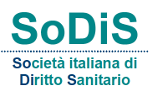La farmacia, anche durante la pandemia causata dal Covid-19, ha rappresentato, quale presidio di pubblico servizio, il fulcro della rete assistenziale di prossimità, rispondendo alle esigenze di salute dei cittadini e, nello stesso tempo, il farmacista ha svolto il ruolo di referente dell’uso sicuro ed efficace dei farmaci facenti parte del programma terapeutico dell’assistito. La farmacia dei servizi, prevista dall’articolo 11 della legge 18 giugno 2009, n. 69 e dal decreto legislativo 3 ottobre 2009, n. 153 con i decreti del 2010, 2011 e 2012, si è arricchita di nuove funzioni legislativamente previste, quali l’erogazione di test (sierologici) mirati a rilevare la presenza di anticorpi IgG e IgM e i tamponi antigenici rapidi per la rilevazione di antigene SARS-CoV-2, che ne hanno rafforzato la veste di soggetto erogatore di prestazioni, non relegandola più quale “semplice” dispensatore di assistenza farmaceutica. La riserva dei suddetti servizi alle sole farmacie territoriali, escludendo quindi le parafarmacie, è stata avallata dalla Corte costituzionale che ha fornito, ancora una volta, una puntuale disamina sulle differenze al momento esistenti tra le due attività che impediscono di ritenere di essere davanti ad identiche situazioni giuridiche, meritevoli di un medesimo trattamento da parte del Legislatore. Per la Corte, non è irragionevole la scelta del Legislatore di “mantenere l’erogazione dei servizi sanitari in discorso all’interno del circuito del SSN e di non estenderla anche a soggetti che hanno a riferimento l’ambito della distribuzione commerciale”. Le farmacie sono state, infatti, scelte dal Legislatore pereffettuare i test diagnostici per la rilevazione del SARS-CoV-2 in quanto rientranti nell’ambito del Servizio Sanitario Nazionale e per la loro dislocazione capillare sul territorio.
Even during the pandemic caused by Covid-19, the pharmacy represented, as a public service garrison, the fulcrum of the local assistance network, responding to the health needs of citizens and, at the same time, the pharmacist played the role of referent for the safe and effective use of drugs forming part of the patient’s therapeutic programme. The pharmacy services, as provided for in article 11 of the law of 18 June 2009, n. 69 and in the legislative decree 3 October 2009, n. 153 with the decrees of 2010, 2011 and 2012, has been enriched with new legislative functions, such as the provision of (serological) tests aimed to detecting the presence of IgG and IgM antibodies and rapid antigenic swabs for the detection of SARS- CoV-2, which have strengthened its role as a provider of services, no longer relegating it to a “simple” pharmaceutical assistance dispenser. The exclusivity of these services to local pharmacies only, thus excluding parapharmacies, was endorsed by the Constitutional Court which once again provided a detailed examination of the differences currently existing between the two activities which prevent us from believing that we are dealing with identical juridical situations, deserving of the same treatment by the Legislator. For the Court, the choice of the Legislator to “maintain the provision of the health services in question within the NHS circuit and not to extend it also to subjects whose scope is commercial distribution” is not unreasonable. Pharmacies were, in fact, chosen by the Legislator to provide health services – and in the specific case the diagnostic tests envisaged by the contested regulations – because they fall within the National Health Service and because of their location on the territory according to the needs of the population served (and therefore not for commercial logic).


